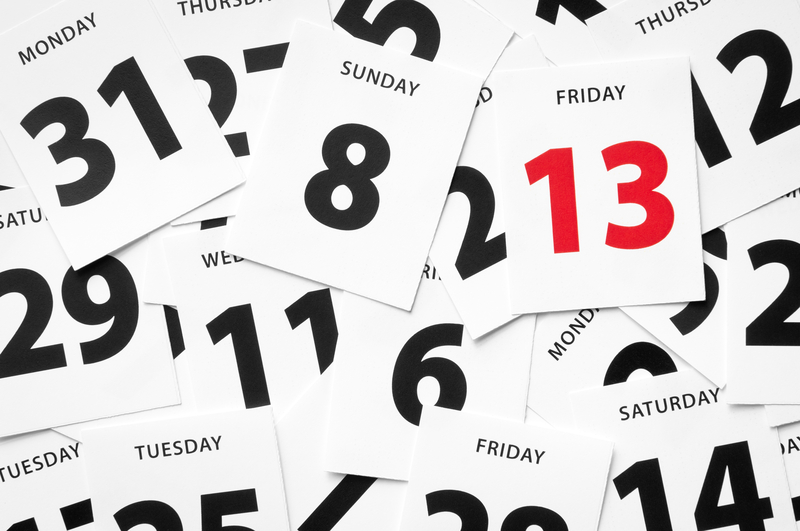Hey New Jersey, today is Friday the 13th and while world events might have you feeling a bit on-edge, there’s no reason to actually fear the date…or is there?
Friday the 13th, a date that conjures up images of bad luck, horror movies, and an uneasy feeling among the superstitious. Every year, this infamous date makes its appearance at least once, sometimes as many as three times, bringing with it a sense of dread for many people around the globe. But why? What makes Friday the 13th so universally unsettling? This blog post aims to delve into the historical origins and psychological explanations behind why Friday the 13th has become synonymous with bad luck and misfortune.
Friday the 13th in Religion and Mythology
The roots of the Friday the 13th superstition can be traced back to various religious and mythological traditions. In Christian lore, there were 13 individuals present at the Last Supper, with Jesus and his 12 apostles. Judas, the apostle who betrayed Jesus, is said to have been the 13th man to sit at the table. Jesus was crucified on a Friday, which adds another layer of ill omen to the date.
Norse Mythology
In Norse mythology, the story of a banquet in Valhalla attended by 12 gods takes a dark turn when Loki, the god of mischief, wasn’t invited and crashes the party as the 13th guest. He incites Hod, the blind god of darkness, to shoot Balder, the god of joy and gladness, with a mistletoe-tipped arrow, leading to Balder’s death and the beginning of the world’s decline.
Numerology
The number 13 has long been considered irregular, standing in contrast to the completeness symbolized by the number 12—like the 12 months in a year or the 12 zodiac signs. This might explain why many buildings skip the 13th floor, labeling it 14 instead.
The Psychological Factor: Paraskevidekatriaphobia
Yes, it’s a real term. Paraskevidekatriaphobia is the fear of Friday the 13th. This phobia is a specific form of triskaidekaphobia, which is a fear of the number 13. The stress and anxiety related to this day can be so severe that some people avoid traveling, making big decisions, or even going to work on Friday the 13th. This collective dread creates a self-fulfilling prophecy, where fearful behavior leads to accidents or mistakes, further perpetuating the myth that the day is unlucky.
The Pop Culture Influence
The widespread belief in the curse of Friday the 13th has been fueled by pop culture, most notably with the ‘Friday the 13th’ horror film franchise, which debuted in 1980. These movies follow the murderous rampages of Jason Voorhees, forever solidifying the date’s link to gruesome events and general malevolence.
So, is Friday the 13th truly an unlucky day, or is it a manifestation of cultural and psychological fears deeply ingrained in the human psyche? While there is no scientific evidence to suggest that the day is inherently unlucky, the belief in its ill omen is a testament to the power of superstition and the human imagination. Whether you see Friday the 13th as a day to exercise extra caution or as an opportunity to debunk myths, one thing is for sure: the allure and mystery surrounding this day will continue to captivate public imagination for years to come.
